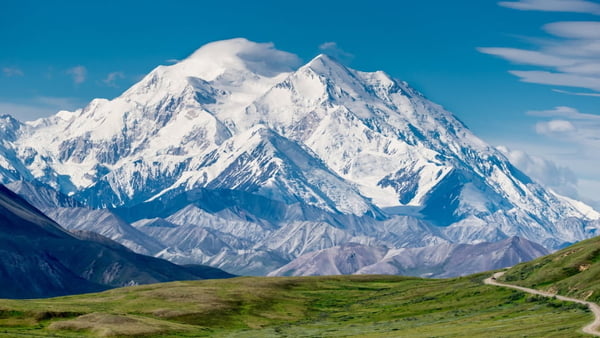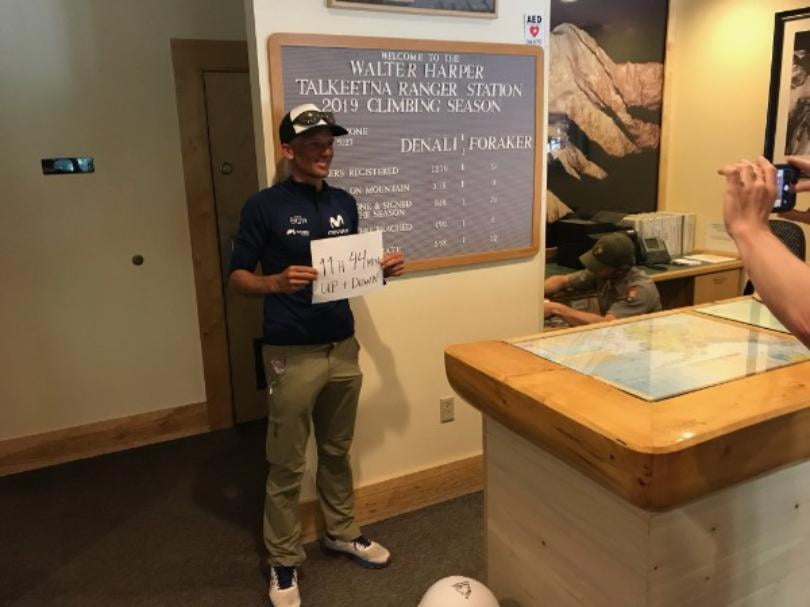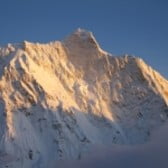
Daily Mountain
48 years, Australia
Ecuadorian Climber Sets New Speed Record on Denali
38-year-old Ecuadorian climber Karl Egloff surpassed the Denali speed record, a climb up and down America's tallest mountain, by just four minutes on Thursday, clocking a time of 11 hours and 44 minutes. He said it was a great honor for the people of his home continent of South America.
 ISTOCK.COM/ZZVISION
ISTOCK.COM/ZZVISION
“It's for all the continent,” he said over the phone after arriving back in Talkeetna, “We are all mountain lovers with a beautiful continent. It's a way people look back where we come from.”
He also celebrated the beautiful weather that Alaska showed him, after a storm thwarted his first attempt in May of 2018.
“It's kind of a dream if you are a nature lover,” he said. “It's beautiful, and I'm just yeah, blown up because of Denali's nature. It's just every time you open the tent it's kind of a story.”
Egloff bested his friend and legend of the speed ascent scene, Spaniard Killian Jornet, who set the record in 2014. Egloff’s time was 11 hours and 44 minutes--four minutes faster than Jornet’s 11 hours and 48 minutes. Jornet bested the previous record by five hours.
Egloff’s new record was remarkable for several reasons. The time of his ascent from the base camp to the top was phenomenally fast--two hours and five minutes faster than Jornet’s.
 Karl Egloff at NPS (Courtesy Holly Sheldon)
Karl Egloff at NPS (Courtesy Holly Sheldon)
“When I saw that gap I said, 'why not to try to go faster than him on the round trip?’ and there's where everything began to try also the round trip back to the base camp,” he said, “I was surprised that I could manage to even just a few minutes better than his time, but the real goal was going up and break the uphill record.”
It was also a day of great weather. Temperature data are not available at the top of the mountain, but at the weather station at 14,200 feet, the air temperature was about 20 degrees Fahrenheit most of Thursday. Considering the altitude, that is downright balmy. And though there were thirty to forty mile-per-hour winds at the top, the clear weather made the hike up a lot more pleasant.
Egloff acknowledged the help of the conditions, saying that was the main difference between his attempt and Jornet’s.
“I had a much better day--definitely a much better day than he had, he chose a day where it was completely foggy on the upper part,” said Egloff.
But Egloff did say he struggled with crowds. Egloff claimed that there were 200 hundred people he had passed on his way to the summit.
(National Parks Service said that number may have been an exaggeration, though the numbers for daily summits won’t be compiled until the end of the climbing season. In 2018, the busiest day saw 67 summits.)
Finally, Egloff completed the record on foot--part of his tour of the Seven Summits of the seven continents that will culminate with Mt. Everest--which put him at a distinct disadvantage to Jornet’s ski-facilitated descent. Egloff’s descent was two hours slower, but his buffer at the top let him squeak by for the overall record.
Egloff said the first thing he’ll do is “take a shower in Talkeetna.” Then, he’ll spend a few days in Anchorage before returning home to Ecuador, where he runs a guiding service.
Asked if he’ll ever try his luck at Alaska’s premier mountain race, Mount Marathon, Egloff said maybe another year.
“It would be amazing opportunity to come back with my family, they don't know Alaska so I probably will have an excuse to come back,” he joked.
He said Mount Marathon was one of the first things he heard about when he arrived in Alaska.
“The first thing I heard since I took a taxi from the airport, was 'you're a runner? You should try this race!’ and that was like the first introduction to Alaska,” he said.
Copyright 2019 KTUU. All rights reserved.
by Lex Treinen
This article first appeared on http://www.ktuu.com. The original can be read here.





